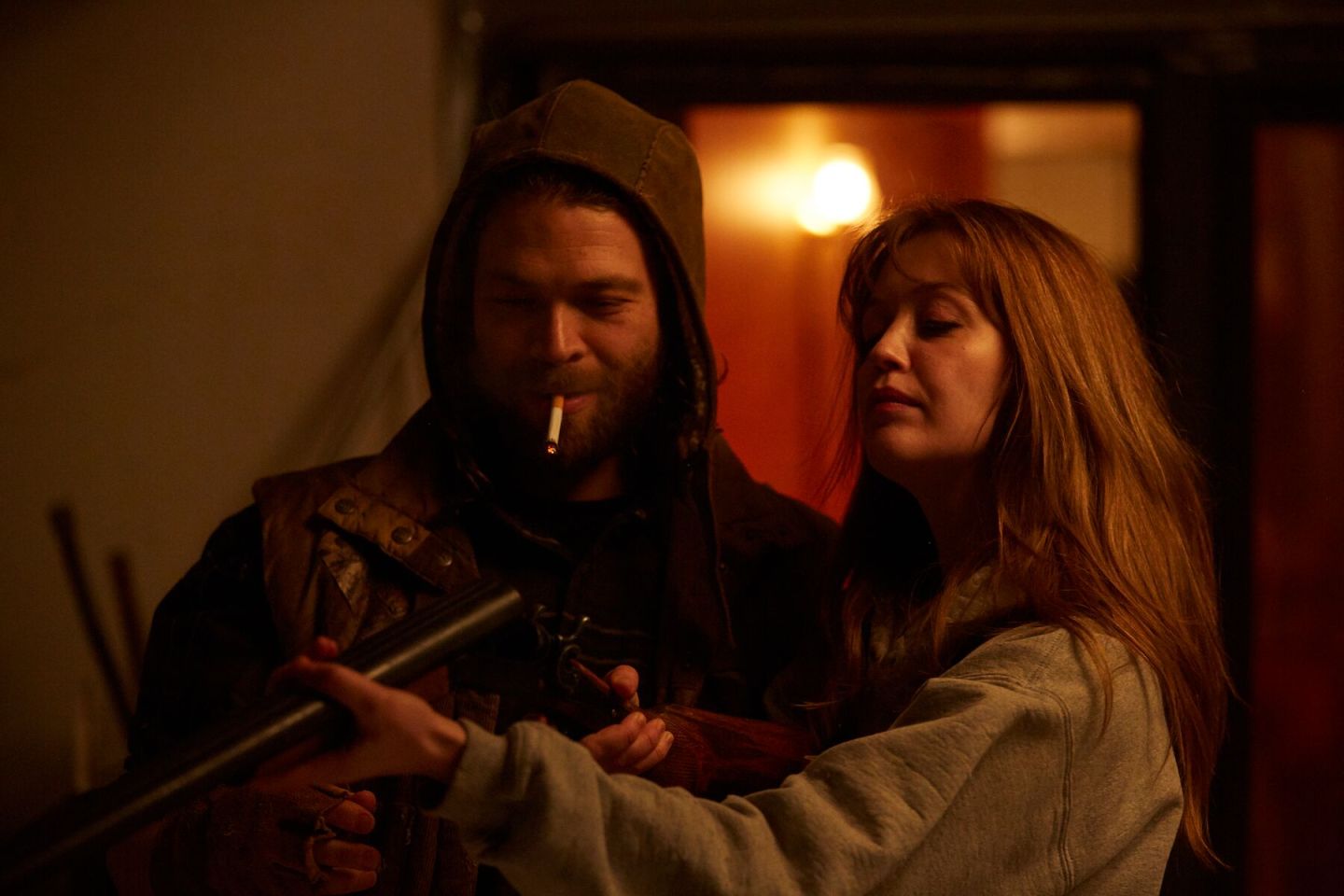An Interview with Ana Valine
By Anita Bedell
This film is part of the annual #mustseeBC filmmaker showcase presented by STORYHIVE, now open until September 28th. Visit mustseebc.viff.org/ for more details and to vote for Once There Was a Winter.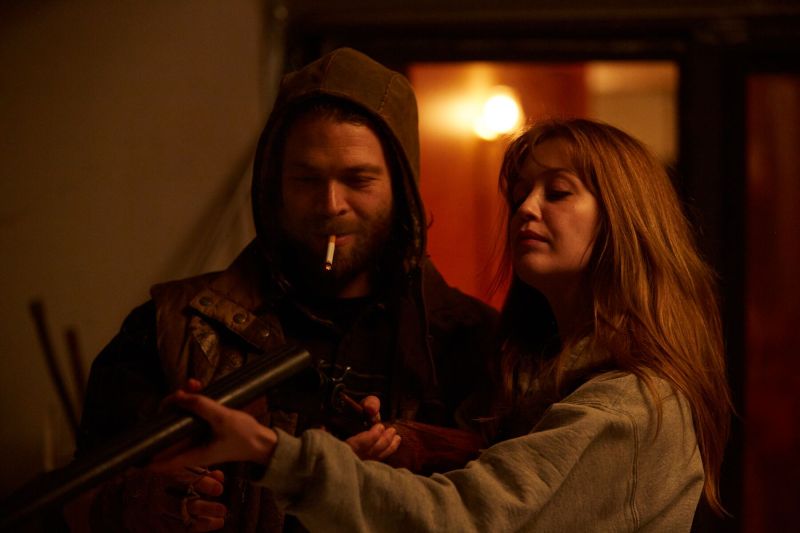
Ana Valine is a multi-award-winning writer and director, and one of Canada’s exciting and daring new filmmakers. A graduate of the Canadian Film Centre’s Directors’ Lab & Short Dramatic Film Program and WIDC at Banff, she has written, directed and produced fiction, experimental and documentary films through her independent production company in Vancouver, Rodeo Queen Pictures. Her debut feature film, Sitting on the Edge of Marlene, was the talk of the Vancouver International Film Festival in 2014, earning Valine the BC Emerging Filmmaker award and numerous accolades and awards. A film described as “darkly comedic,” Valine expertly captured the deeply flawed all-too-real state of her female characters. I had the pleasure of chatting with Valine over email about her new film, Once There Was a Winter.
“A winter wonderland, a young Lady secluded in a doublewide trailer with flowing liquor, a Hunter, a Welder, a Plumber, guns, bullets, a missing wife, and ambiguous sexual tension… What could go wrong?”
Anita Bedell: The premise for this film, for some reason, brings to mind old fairytales like “Snow White and the Seven Dwarves,” except a darkly twisted and cold Canadian version—dark and twisted being something Canadians do very well. Can you tell me what inspired this film? Your debut feature film, Sitting on the Edge of Marlene was inspired and based on a short story by Canadian writer Billie Livingston, “The Trouble with Marlene.” Did you have the same kind of inspiration for Winter? Is it a Canadian story?
Ana Valine: The inspiration for this story came a long time ago. In my late twenties, I worked up north on the pipeline and I heard a little here and there of some uncomfortable or dangerous situations women were in. I also found myself in a dodgy situation one night. I realized that no one would know where to find me if something happened so I had to use my wits to get through it. Apparently it stuck with me all those years so I took bits of what I heard and experienced and fictionalized it. The core of it is though, women all over the world experience these kinds of things and many don’t live to tell. It’s also about love- familial love, unmentionable love, and unrequited love. And games, the kind of head games only family and old friends can play because they have the history.
Primarily though, it’s about survival. How women have to adapt to get through the world. Our main character doesn’t follow expectation. She wants to have fun and learn new things, and because of this she finds herself in over her head. It’s very Canadian to Canadians but it’s also a worldwide experience.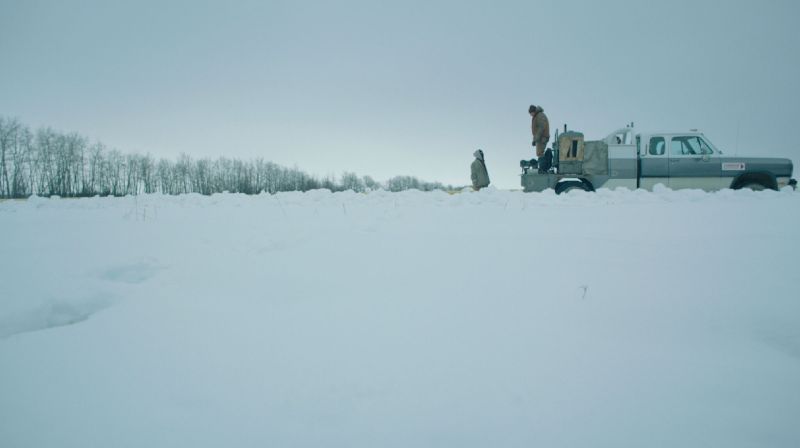
Bedell: On your website it’s mentioned that, “it was a trip, that you went north for your second feature (full immersion, method directing) and came home with a film in the can.” Was it important that the film be shot on location? Did you hire local cast and crew?
Valine: The story had to be told in the North. The isolation, economy, and social habits of Northerners lends itself to excess on occasion and is unique in its response to the weather cycles. There is a certain surrender to nature when you know you can’t change the weather. People have to adapt so it changes the rhythm and tempo of the way they live. There are terms like “cabin fever” and “bushed” that refer to what can happen in this kind of isolated environment when one is alone for long periods of time. There is an interesting combination of coziness and loneliness in a home in the snow in the middle of nowhere that intrigued me.
It was also important for me to look at how we are using the earth and how we still try to own it. This is reflected in the industry and the wildlife, the yin/yang of things, the masculine/feminine and how we struggle for balance.
The local community was incredibly supportive in helping us make the film. That’s how they are there. If you need something and they don’t have it, they know someone who does. We actually went up with very little other than gear because when we scouted and asked around, the answer was always “we can get that for you,” and they did. I think that comes from sharing resources and genuine generosity and good will.
Bedell: I’m especially curious why you chose the North in winter. Winter in the North can be rather… unforgiving. Was the harsh environment instrumental to telling this particular story?
Winter was essential. The weather becomes a character unto itself and needed to be the opposite of the heat and fire in the house. It had to be winter because the choice between staying in the warm trailer or braving the cold becomes a part of the story.
Bedell: From what I know of you – graduate of the Canadian Film Centre’s (CFC) Cineplex Entertainment Film Program (Director’s Lab), Short Dramatic Film Program – having completed three short films (alice & bastard, a love poem, and Nightmare on Cambie Street) in three short years, not to mention your other accomplishments, I get the sense that full immersion method directing in harsh environments isn’t something new, that perhaps it even drives you. Can you tell me what the filmmaking process is like for you?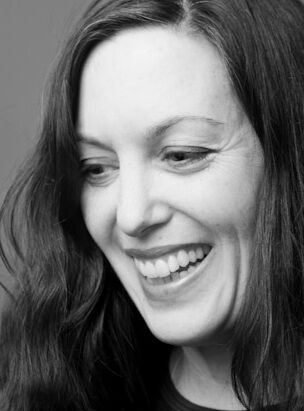
Valine: Every film and creative process is different. I believe that the story will tell you how it wants to be made so it’s always new for me. This one was definitely “method directing”. I joked about it with the cast and crew before we went up but it really was true. The script has the pipes in the trailer frozen so there is no running water. The trailer we used to film in had no running water or heat so we had to go an hour early to get the wood stove going so it would be warm enough for the camera and actors and crew.
It was a real adventure. Definitely hard on everyone as the material was tough and the night shooting schedule was intense but everyone seemed to have a positive experience and I think we were all changed by it in some way. In talking to Lori and Seanna (the producers), we agreed that the location shoots with minimal crew are really special and we would do it again. With that kind of plan though, everyone has to be multitalented and take on a few roles. Lori, Seanna, and the crew did a stellar job of sourcing locally and pulling everything together. I won’t give too much away here, but it was all real.
Bedell: I’m really interested in your work with “women’s strive/thrive stories and bringing those who live on the outside into view”. Even in today’s age, it is still refreshing to see female protagonists in film. And keeping in mind the Bechdel test, can you tell me more about your mandate as a female filmmaker? Why sharing women’s experiences is important to you?
Valine: This is a good question. Once There Was a Winter doesn’t pass the Bechdel test. There is only one female character who is human and present. Although she is the lead, it is a very masculine and raw film. I wanted to have a female surrounded by males in a male world to look at how she would engage, cope, and survive, if she could.
I’m drawn to telling stories of women because we can be quite subtle in the ways we adapt in the world. Sometimes we’re not, sometimes we’re like Marlene and wear it on our sleeves, but that’s also what made her fascinating, and yes, she was on the outside. She wasn’t the kind of woman who’d get invited to dinner parties.
Lady, in Winter, is also on the outside. Maybe she has more of a social life where she’s from but the night of the story, she is an outsider. She doesn’t have the same regional “proper” social behaviour so she pushes boundaries and surprises the men with her unapologetic desire to learn and be included. And there are repercussions for that. I like stories of women making unpopular and unsafe choices. There is a tremendous amount of strength in these characters and I’m inspired by them.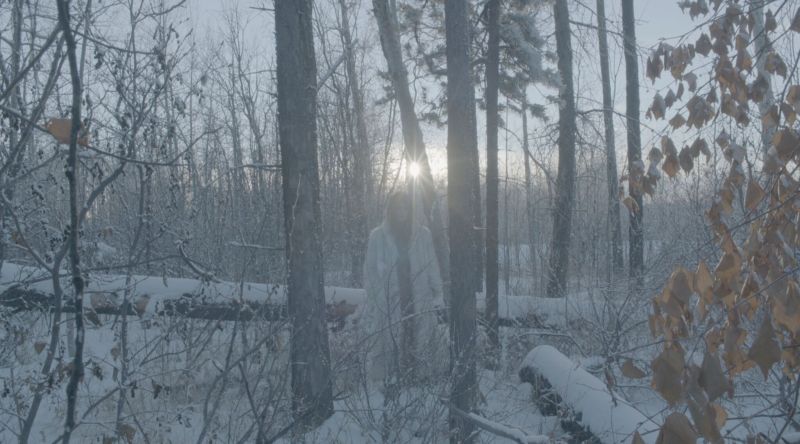
Bedell: In your experience, are these characters well received by the movie-going audience? I had the pleasure of seeing Marlene at VIFF in 2014. The audience seemed to have a rather strong reaction to the film. Has Winter garnered as strong a reaction so far? Is that something you think about, or care about?
Valine: Ha! That’s a good way of putting it… “a strong reaction”. Yes, Sitting on the Edge of Marlene really polarized audiences and critics. It did well but it wasn’t easy. My first public newspaper review was brutal so I had to dig deep and remind myself why I do this. If I had gotten a warm, fuzzy reception for Marlene I wouldn’t have had the courage to make Once There Was a Winter. I expect this film and the characters will generate strong reactions as well since there’s another dame doing the unexpected and living large.
Once There Was a Winter is screening at the Vancouver International Film Festival as part of the SEA TO SKY program stream on Sunday, October 1 and again Friday, October 6. Tickets available here.
Anita Bedell is a recent MFA graduate from the University of British Columbia Creative Writing program. A writer of art-house films and fiction, she is currently working on a novel set in northern oil and gas country, living in a remote cabin in the woods trying not to “go bush”.
